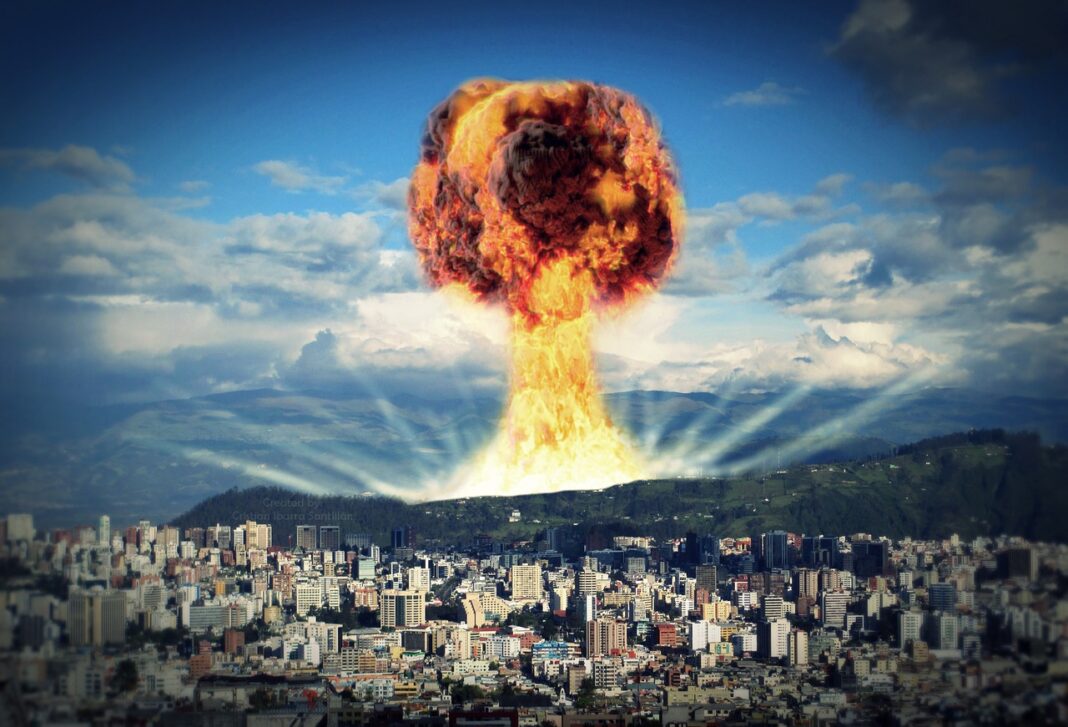There is enormous tension in the world, especially between East and West. Many people fear nuclear war. A full-scale nuclear conflict between the United States and Russia would spark a catastrophic global famine, with potentially as many as 5 billion people dying of starvation in the years immediately after the war’s conclusion, according to a global study led by Rutgers climate scientists that estimates post-conflict crop production. A new study published recently in the journal Nature Food.
The study produced a frightening scenario
The study examines six different scenarios of nuclear war, which include: a conflagration involving the U.S., its allies, and Russia and five smaller-scale nuclear conflicts between India and Pakistan. The US and Russia together possess roughly 90% of all nuclear weapons, so a conflict between these countries would have the most devastating consequences. A localized India-Pakistan war would also reverberate worldwide, resulting in a 7% decline in global average caloric production and possibly two billion deaths from lack of food. The risk of direct nuclear conflict is the highest since the Cold War. Four years after a nuclear war between the US and Russia, average global calorie production would drop by 90%.
“The data tell us one thing: We must prevent a nuclear war from ever happening,” said Alan Robock, a Distinguished Professor of climate science in the Department of Environmental Sciences at Rutgers University and co-author of the study.
“A large percentage of the people will be starving,” Lili Xia, the study’s lead author, told Nature. “It’s really bad.”

The planet would cool and the soil would be contaminated
“In a nuclear war, bombs targeted at cities and industrial areas would start firestorms, injecting large amounts of soot into the upper atmosphere, which would spread globally and rapidly cool the planet,” the study notes. “Dry soot loadings would cause decadal disruptions in Earth’s climate, which would impact food production systems on land and in the oceans.”

“Nuclear war would primarily contaminate soil and water close to where nuclear weapons were used,” the researchers continued. “Soot disperses globally once it reaches the upper atmosphere; thus, our results are globally relevant regardless of the warring nations.”
“In conclusion,” they add, “the reduced light, global cooling, and likely trade restrictions after nuclear wars would be a global catastrophe for food security.”
Nuclear weapons must be completely banned
“If nuclear weapons exist, they can be used, and the world has come close to nuclear war several times,” Robock said. “Banning nuclear weapons is the only long-term solution. The five-year-old UN Treaty on the Prohibition of Nuclear Weapons has been ratified by 66 nations, but none of the nine nuclear states. Our work makes clear that it is time for those nine states to listen to science and the rest of the world and sign this treaty.”
Resources:
https://phys.org/news/2022-08-nuclear-war-global-famine-billions.html
https://www.commondreams.org/news/2022/08/15/full-scale-nuclear-war-between-us-and-russia-could-cause-5-billion-starve-death
Image credit: Nature Food, Pixabay.com
















